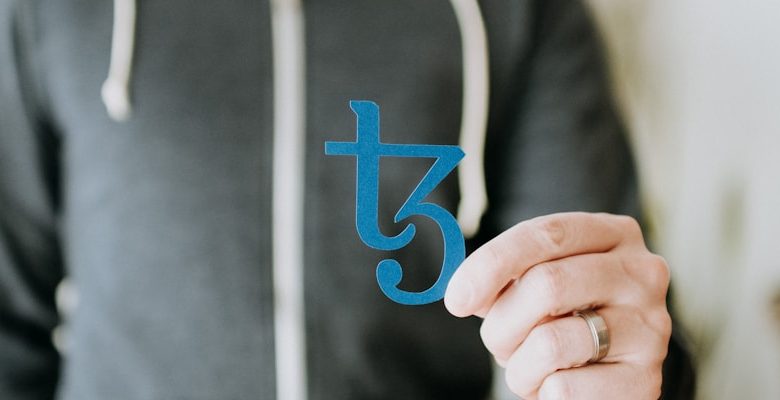The Impact of Blockchain on Intellectual Property Rights

- Understanding Blockchain Technology
- Overview of Intellectual Property Rights
- Challenges in Protecting Intellectual Property Online
- The Role of Smart Contracts in IP Rights
- Potential Benefits of Blockchain for IP Protection
- Future Implications of Blockchain on IP Rights
Understanding Blockchain Technology
Blockchain technology is a revolutionary innovation that has the potential to transform various industries, including intellectual property rights. It is a decentralized, distributed ledger that securely records transactions across a network of computers. This technology enables transparency, security, and immutability in recording and verifying data, making it a valuable tool for managing intellectual property rights.
One of the key benefits of blockchain technology is its ability to create a tamper-proof record of ownership and transactions. By using cryptographic techniques, blockchain ensures that once data is recorded, it cannot be altered or deleted without consensus from the network. This feature provides a high level of trust and security for intellectual property owners.
Furthermore, blockchain technology allows for the creation of smart contracts, which are self-executing contracts with the terms of the agreement directly written into code. Smart contracts can automate the process of managing intellectual property rights, such as licensing agreements, royalties, and copyright protection. This automation reduces the need for intermediaries, streamlines processes, and minimizes the risk of disputes.
In addition, blockchain technology can be used to create digital certificates of authenticity for intellectual property assets. These certificates can provide proof of ownership, provenance, and originality for digital content, such as music, art, and written works. By leveraging blockchain technology, creators and owners of intellectual property can protect their rights and prevent unauthorized use or distribution.
Overall, blockchain technology has the potential to revolutionize the management of intellectual property rights by providing transparency, security, and efficiency in recording and verifying ownership and transactions. As this technology continues to evolve and gain adoption, it will be essential for intellectual property owners to understand its implications and leverage its benefits to protect and monetize their assets effectively.
Overview of Intellectual Property Rights
Intellectual property rights refer to the legal protections granted to creators and owners of original works, inventions, or designs. These rights allow individuals and companies to have exclusive control over the use and distribution of their creations. Intellectual property rights are crucial in incentivizing innovation and creativity in various industries. They provide a framework for creators to profit from their ideas and inventions, thus encouraging further advancements in technology and culture.
Blockchain technology has the potential to revolutionize the way intellectual property rights are managed and enforced. By utilizing blockchain, creators can securely record their creations on a decentralized and tamper-proof ledger. This ensures that the ownership of intellectual property is transparent and indisputable. Blockchain can also streamline the process of licensing and royalty payments, reducing the risk of infringement and ensuring fair compensation for creators.
One of the key benefits of blockchain in intellectual property rights is the ability to create smart contracts. Smart contracts are self-executing agreements with the terms of the contract directly written into code. These contracts can automate the process of licensing and royalty payments, ensuring that creators receive their fair share without the need for intermediaries. This not only reduces costs but also minimizes the risk of disputes and delays in payments.
Overall, blockchain technology has the potential to enhance the protection and management of intellectual property rights. By providing a secure and transparent platform for recording and enforcing ownership, blockchain can empower creators to protect their creations and ensure they are fairly compensated for their work. As the technology continues to evolve, it will be interesting to see how blockchain further impacts intellectual property rights in the future.
Challenges in Protecting Intellectual Property Online
Ensuring the protection of intellectual property online poses several challenges in the digital age. One of the main issues is the ease of copying and distributing content without proper authorization. This can lead to a loss of revenue for creators and rights holders, as well as a dilution of their brand value.
Another challenge is the difficulty of tracking and enforcing intellectual property rights across different jurisdictions. With the borderless nature of the internet, it can be challenging to identify and take action against infringers who may be located in other countries with different laws and regulations.
Moreover, the constantly evolving technology landscape presents a challenge in keeping up with the latest tools and techniques used by infringers to bypass existing protections. This requires constant vigilance and adaptation on the part of rights holders to stay one step ahead of those seeking to exploit their intellectual property.
In light of these challenges, blockchain technology offers a promising solution to help protect intellectual property rights online. By providing a secure and transparent way to record and verify ownership of digital assets, blockchain can help establish a reliable system for tracking and enforcing intellectual property rights. This can help deter infringement and provide recourse for rights holders in case of unauthorized use of their intellectual property.
Overall, while there are significant challenges in protecting intellectual property online, the potential benefits of blockchain technology in safeguarding intellectual property rights are considerable. By leveraging the unique capabilities of blockchain, rights holders can better protect their creations and ensure fair compensation for their work in the digital world.
The Role of Smart Contracts in IP Rights
Smart contracts play a crucial role in the realm of intellectual property rights by providing a secure and transparent way to manage and enforce these rights. By utilizing blockchain technology, smart contracts can automate the process of verifying ownership, licensing, and transfer of intellectual property assets.
One of the key benefits of using smart contracts in intellectual property rights management is the elimination of intermediaries, such as lawyers or notaries, which can reduce costs and streamline the process. Additionally, smart contracts can help in enforcing copyright protection by automatically tracking and managing the use of digital content.
Furthermore, smart contracts can ensure that creators receive fair compensation for their work by enabling the automatic execution of royalty payments based on predefined terms. This can help in preventing unauthorized use of intellectual property assets and reduce the risk of infringement.
Overall, the use of smart contracts in intellectual property rights can revolutionize the way these rights are managed and enforced. By leveraging blockchain technology, smart contracts offer a secure, efficient, and cost-effective solution for protecting and monetizing intellectual property assets in the digital age.
Potential Benefits of Blockchain for IP Protection
One of the potential benefits of utilizing blockchain technology for intellectual property protection is the enhanced security it offers. Blockchain provides a decentralized and tamper-proof system for storing information, making it extremely difficult for unauthorized parties to alter or steal intellectual property. This heightened level of security can help creators and innovators safeguard their ideas and creations from infringement and unauthorized use.
In addition to security, blockchain technology also allows for transparent and immutable record-keeping. Every transaction or update made to the blockchain is recorded in a transparent and verifiable manner, creating a comprehensive audit trail for intellectual property rights. This transparency can help resolve disputes over ownership or infringement more efficiently, as all parties involved can easily verify the authenticity and history of the intellectual property in question.
Furthermore, blockchain technology can streamline the process of registering and managing intellectual property rights. By utilizing smart contracts, creators and innovators can automate the licensing and distribution of their intellectual property, reducing the need for intermediaries and minimizing the risk of disputes or delays. This automation can help creators protect their intellectual property more effectively and ensure that they receive fair compensation for their work.
Overall, the integration of blockchain technology into intellectual property protection offers a range of potential benefits, including enhanced security, transparent record-keeping, and streamlined management processes. By leveraging the unique capabilities of blockchain, creators and innovators can better protect their intellectual property rights and establish a more efficient and secure ecosystem for innovation and creativity.
Future Implications of Blockchain on IP Rights
The future implications of blockchain on intellectual property rights are vast and promising. Blockchain technology has the potential to revolutionize the way IP rights are managed and enforced, bringing about greater transparency, security, and efficiency in the process. By utilizing blockchain, creators can securely register their works and establish a clear record of ownership, which can help prevent disputes and infringement cases.
One of the key benefits of blockchain in relation to IP rights is the ability to create smart contracts that automatically execute when certain conditions are met. This can streamline licensing agreements, royalty payments, and other aspects of IP management, reducing the need for intermediaries and minimizing the risk of errors or fraud.
Furthermore, blockchain can enable the creation of decentralized marketplaces for buying and selling intellectual property, allowing creators to reach a wider audience and monetize their works more effectively. This can also help smaller creators and innovators protect their ideas and creations without the need for costly legal processes.
Overall, the integration of blockchain technology into the realm of intellectual property rights has the potential to level the playing field for creators, provide greater protection for their works, and facilitate a more efficient and transparent system for managing and enforcing IP rights. As blockchain continues to evolve and gain acceptance in various industries, its impact on IP rights is likely to become even more pronounced in the future.



